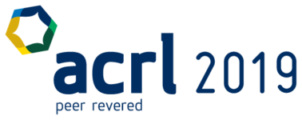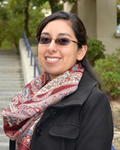Session Description:
When applying for one of our Outreach Librarian positions, must be comfortable with ambiguity has become a standard requirement. New and existing librarians are discovering the importance of that mindset as we connect foundational skills and values of librarianship to emerging technologies, creative approaches to outreach, and the cultivation of a fearless mentality when taking on new roles. This presentation highlights five stories of Outreach Librarians – each with their own background and perspective on adopting this aspirational role – shares an organizational culture that encourages success, and guides participants in connecting their needs to organizational goals.

 Brenna Helmstutler
Brenna Helmstutler Samantha Harlow
Samantha Harlow Breanne Kirsch
Breanne Kirsch Erin Richter-Weikum
Erin Richter-Weikum Courtney Mlinar
Courtney Mlinar Terezita Overduin
Terezita Overduin Allison Hosier
Allison Hosier Megan Kinney
Megan Kinney Claire Lobdell
Claire Lobdell Kelly McElroy
Kelly McElroy